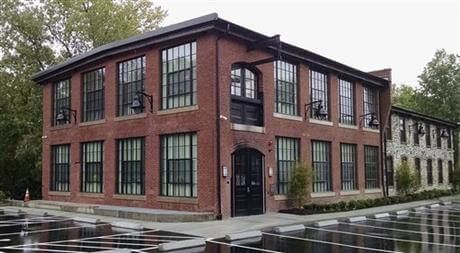
By MICHELLE R. SMITH
For more than two years, Don Perrault lived without a home as the Vietnam veteran struggled with depression and personal setbacks that at one point left him with nothing to do but take a therapeutic 7-day walk to New Jersey — then walk back.
Now, after living out of a shelter where he shared a room with six other men, he has a home of his own under an ambitious push to wipe out homelessness among veterans in Rhode Island.
“It helps a little bit with your mind, your mental aspect,” Perrault, 60, said. “It’s hard for a person who is homeless to have dignity.”
The efforts that have secured Perrault a newly renovated one-bedroom apartment — complete with new furniture and even a TV — for a rental voucher and $25 per month for rent and utilities are part of a national push to end homelessness among veterans by the end of the year. The goal has been spurred by both President Barack Obama’s administration and Zero: 2016, a campaign run by the nonprofit group Community Solutions
In August, the federal government declared Connecticut the first state to end chronic homelessness among veterans. New Orleans, Houston and a handful of other communities have also reached the goal.
Nearly 50,000 veterans were homeless nationwide before the effort began, Community Solutions estimated.
Rhode Island, Connecticut and New Mexico, all part of the campaign, are on track to reach the veterans goal, said Community Solutions spokesman Adam Gibbs. One strategy all three states are using is a list of names, he said.
In Rhode Island, every person who comes into the homeless system is given a “vulnerability survey,” which asks a series of questions about their history and assigns them a score based on how likely they are to die on the street. Then, advocates create a list of all the people who are homeless with the most vulnerable people listed on top, by name.
A committee meets weekly and goes down the list to try to find housing for each person. If a person has a problem that’s standing in the way of getting an apartment, such as a criminal record, the committee tries to come up with a solution.
The state is also using a “housing first” strategy, which prioritizes getting people into permanent housing, said Eric Hirsch, a professor of sociology at Providence College, who chairs the Zero: 2016 campaign in Rhode Island. In the past, people would be placed in temporary housing and have to get substance abuse or mental health counseling or jump through other hoops before getting a permanent place to live, Hirsch said.
Now, they get the apartment first and are then “surrounded” with services that they can then choose to use. Many decide on their own they want the help, he said. Hirsch said his research and research by others shows 85 to 95 percent of people placed in permanent housing were there a year later using this approach.
A big help has also been a dedicated stream of money from the state, and more money set aside for things like rental subsidies, said Jim Ryczek, executive director of the Rhode Island Coalition for the Homeless.
Advocates say they don’t expect to eliminate homelessness completely, but that their goal is to make sure if people become homeless, they have a permanent home within weeks, rather than months or years.
Rhode Island advocates last year estimated that 4,067 Rhode Islanders used a homeless shelter at some time in 2014, out of a population of around 1 million people.
The Zero: 2016 program’s next goal is to end chronic homelessness in a several states and cities by the end of next year.
In Rhode Island, the project will be using the same model they have used for veterans. They have already found homes for 176 chronically homeless people since January, out of an estimated 400 chronically homeless. They also plan to focus on housing families.


